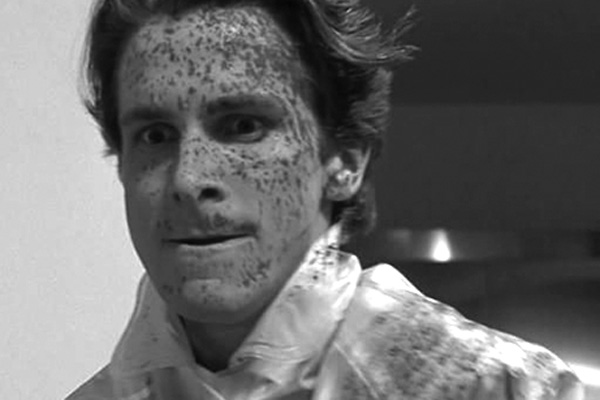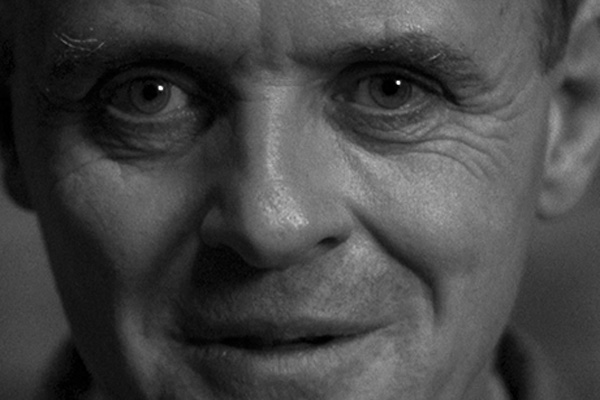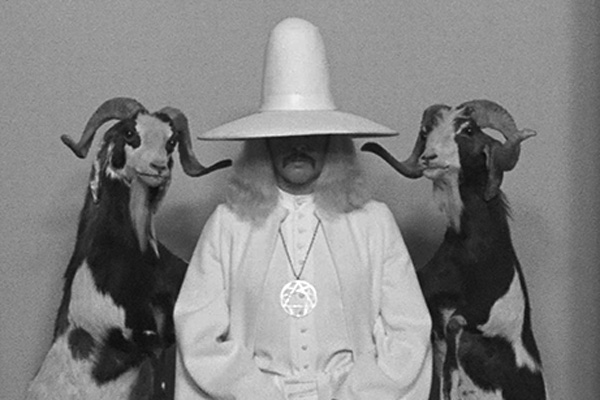S01

PSYC403
(Adult Psychopathology)
Only 10 people a year are trusted with the immense power of this paper, and Critic speculates it is typically restricted to Austrians with child dungeons.
The course covers advanced topics in abnormal adult psychology, and looks specifically at the features, development and causes of mental disorder.
Richard Linscott, the course co-ordinator, says that “use of a problem-based teaching format sees students assume much of the teaching and learning responsibilities in the course, as well as making decisions about internal assessment arrangements and exam content.” Sounds ideal, so long as your classmates aren’t latent psychopaths.
Linscott continues with students’ opinions of the paper. “Members of the 2012 cohort were asked to provide three adjectives each and replied (un-censored): bizarre, fascinating, interactive, stimulating, collaborative, unique, hard work, eye-opening, thought-provoking, unusual, self-directed, helpful, insightful, engaging, and socially-sensitive. Students go on from PSYC403 to undertake postgraduate training in clinical psychology.”

ANTH424
(The Anthropology Of Evil)
Cyril Schafer, lecturer for ANTH424, says the course “provides a cross-cultural and historical investigation of beliefs and activities seen as manifestations of evil in the world ... exploring and analysing the social construction of evil and the facilitation of organised human cruelty and wickedness,” no doubt using CHEM191 as a
case study.
Schafer describes the first part of the course as “problematising the concept of evil and examining contemporary definitional debates surrounding the use of this term.”
The second section of the course “explores recent representations of evil in the media and popular culture, before critically analysing four important figures associated with evil, transgression, and death in western history (cannibals, Satan, witches and vampires).”
Finally, the course considers the social organisation of evil and narratives of surviving it. This section begins by briefly examining genocide and state-sanctioned violence, before exploring charisma and leadership.

MSMX704
(Introduction to Pain)
Bronwyn Thompson, course coordinator for Introduction to Pain, said “it’s great to see Critic covering the most interesting topic of Pain, because it’s my favourite topic.” At this point we knew we were onto something great.
“Pain is absolutely vital to life,” she continued. “People born without pain die very young, people who lose sensation in extremities (from leprosy) develop severe injuries to their bodies because they can’t tell when they’re harming themselves, and people post-spinal cord injury need to be taught to check their body for injury from pressure because they can’t detect when this is happening.”
“At the same time, people with amputations can end up with pain in the parts of the limb they no longer possess, people with spinal cord injury can have terrible pain below the level of their spinal trauma (where they have no other sensations), and of course, there are people who deliberately seek painful experiences through body piercing, body suspensions and other body modifications like scarification. Or those who read Critic.”
Burn. Critic suggests that Thompson actually meant Salient here.
“The questions this course can answer are – can you tell if someone is faking pain? Is pain without injury psychosomatic (imaginary)? Or are people who have this kind of pain just mad? Why are psychologists so interested in pain? Why are there more people looking for treatment for back pain when physically demanding work is reducing? Is pain all in the brain, the tissues, or is it ‘somewhere else,’ maybe ‘an emergent biopsychosocial phenomenon’?”
Looks like a solid paper to us, although Critic speculates the practicals may well be worth missing unless you’re an emo or “cut for Bieber.”
S02

NAUT101
(Nautical Studies 1)
In which you are not taught by a Professor, but by a seasoned Naval Captain.
The course guide describes this paper as “a theoretical and practical introduction to nautical studies. Students will gain an understanding of maritime law and regulations, in-shore navigation, and maritime communications. Practical issues such as health and safety at sea, and seamanship will also be covered.”
In the spirit of openness and honesty, Critic does advise prospective students that practical classes begin at 8am on Saturday. Fortunately, it is explicitly open to students of Theology, so if you like the next three papers you will be well on your way to becoming an 1860s missionary.

RELX216
(Zen Buddhism)
Also known as “Relax 101,” this exists as an extramural paper, encouraging laziness and lots of pot consumption on Wellington’s Cuba Street. Focusing on the history, doctrines and practices of Chan Buddhism in China and Zen Buddhism in Japan, the scope of the paper ranges from meditation and koan to an analysis of the reinvention and recreation of Zen tradition in the West.
Ben Schonthal, Lecturer in Buddhism, thinks “the paper will interest and engage students from a variety of academic disciplines both because of the fascinating subject material (“what is the sound of one hand clapping?”) and because of the attention to Zen in its historical, political, and social contexts (“is there a link between Zen and WWII Japanese militarism?”).

RELS217
(Religion, Science and Magic)
The only prerequisite for this course is attendance at Knox College, as it is taught exclusively by the School of Witchcraft and Wizardry.
It kicks off the semester with contemporary debates around creationism, alternative medicine (sorry Steve Jobs) and witchcraft (Wicca), examining the relationships between modern sciences and the worlds of Kabbalah (an esoteric religion), alchemy (elixir of life, philosopher’s stones, turning shit into gold, etc.), and the “apocalyptic religion from which they emerged.”
Greg Dawes, Associate Professor of Philosophy and Religion, told us “when people talk about ‘magic’ today, what they generally mean is stage magic, mere sleight of hand. This can be mysterious, but only in the sense that we cannot see how we are being deceived. We know there is some trick involved. Few people today take seriously magic in its original sense, as the attempt to bring about tangible effects by invoking occult powers. But it was not always so. Five hundred years ago, European intellectuals took magic very seriously indeed. Many claimed to be able to practice magic, although they insisted that their magic was ‘natural’ rather than ‘demonic’.
“The paper does demand that students read some sixteenth and seventeenth-century texts, which can be difficult because their authors inhabited a very different world from ours. But that’s also what makes them interesting.
“Students who take this course will learn about the origins of modern science and about the shifting boundaries between religion and magic. They will even be introduced to some ancient Roman spells, although they are not encouraged to try them out.”
To Ponder For Next Year:

RELS215
(Ecstasy, Trance and Possession)
This religious paper presumably focuses on doing ecstasy and using the ensuing trance-like state to escape trial for possession. Critic speculates that the course coordinator, Erica Baffelli, was unable to get diversion when tried late last year, and hence why the paper is “unlikely” to be offered again, even following her release from her likely incarceration in the Milton Hilton.
Honourable Mention

LAWS475
(Understanding Judges)
Despite contributing a full 15 points to the Bachelor of Laws degree, Understanding Judges makes primary school Social Studies look like quantum theory. This Summer School paper takes place in Auckland, and theoretically comprises three intensive weekends of discussion-led teaching. In reality, 10% of the grade is a group presentation, for which students receive credit even if they “can’t make it on the day.” 40% is a 1000-word paper, and the remaining 50% is a one-hour exam. Questions are provided in advance, and students can bring in pre-written answers, meaning that the exam is effectively a one-hour handwriting test. However, for genial and ever-empathetic lecturer Richard Cornes, this examination policy is still a little rigorous, so there is also the option of writing your own question and answering it.
A Critic staff member who took the paper in 2013 assures us that she never collected the course materials, has no understanding of judges whatsoever, and spent a sum total of six hours working on the paper, including the one-hour final exam. When asked what she had learned from LAWS475, she replied that she had been forced to undertake stringent Wikipedia research on Krusty the Clown quotes to add the requisite “originality and creativity” to her pre-prepared exam answer.







